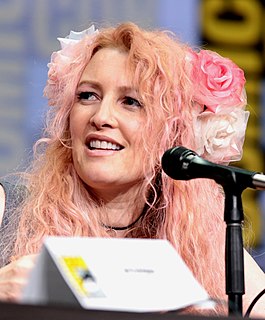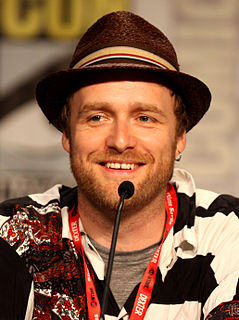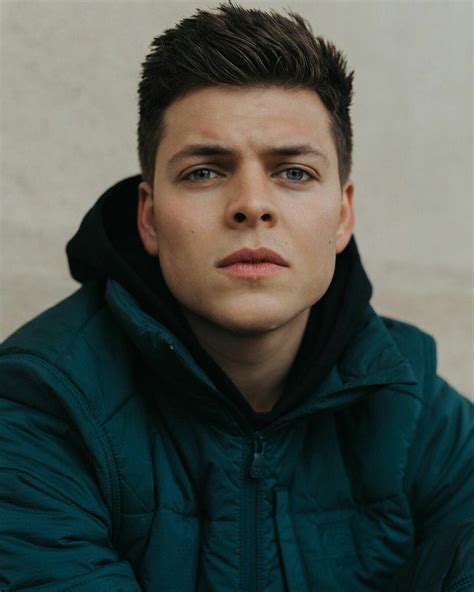A Quote by Jim Lee
From 'The Sandman' and 'Black Orchid' to 'Whatever Happened to the Caped Crusader?,' Neil Gaiman has provided some of the most memorable stories of the comic book industry.
Related Quotes
My brother had a big comic book chest, and he kept the key in the exact same place. So when he would leave for camp or be gone for a few days at a friend's house, I would totally sneak into that room and open the comic book chest and see 'X-Men' and 'Sandman' and all the Neil Gaiman stuff and all the Marvel stuff and some old 'Thor' comics.
Neil [Gaiman, creator of the comic Sandman, featuring the Amos-based character Delirium] believes that faeries have gone beyond cool. They've transcended cool. I just think alternate realities make you a good writer. If your work is any more than one dimension, you believe in faeries. I'm sure I'll start thinking now about all the people I know who don't believe, that I quite like. We can still go have a pint. Not the Chardonnay, though.
Simon's walls were covered in what looked like pages ripped from a comic book, but when I squinted, I realized they were hand drawn. Some were black-and-white, but most were in full color, everything from character sketches to splash panels to full pages, done in a style that wasn't quite manga, wasn't quite comic book.







































